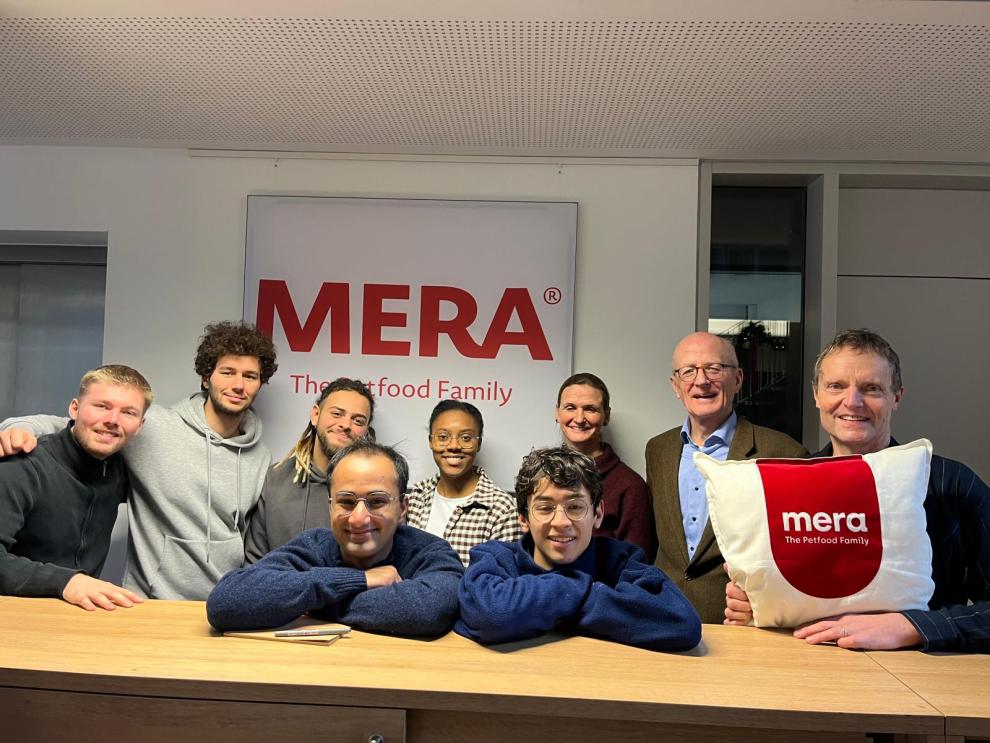Students from HSRW Life Sciences and the Catholic University of Lyon develop sustainable packaging for pet food
A collaboration between students from Rhine-Waal University of Applied Sciences and the Catholic University of Lyon (UCLY) has produced innovative and sustainable packaging solutions for Mera Tiernahrung, a leading pet food manufacturer. This project, facilitated by students from the Bioengineering, Sustainable Agriculture and Quality, Environment, Safety and Hygiene programmes, focused on developing environmentally friendly alternatives to Mera's current plastic-based storage of raw material samples and continues a tradition of successful international partnerships between the two institutions.
This latest collaboration is not an isolated case. Rhine-Waal and UCLY have a long history of joint initiatives, particularly within the Erasmus programme. As a one-week Erasmus experience, students from Germany, Finland, Sweden, the Czech Republic and UCLY come together in Lyon to develop innovative strategies to promote environmentally friendly behaviour in the community. They are involved in intensive brainstorming and intercultural discussions that lead to creative ‘green impulses’ to promote sustainable practices.
Under the guidance of Prof Dr Rudolf Schumachers, Prof Dr Simone Pauling and Dr Stefan Mandel (Mera Tiernahrung), the student team worked on the Mera project, proposing to replace conventional plastic bottles with containers made from polylactic acid (PLA), a biodegradable bioplastic, and cellulose. These materials offer a sustainable solution as they are derived from renewable resources and decompose naturally, minimising the environmental impact. In addition, the project investigated the potential to utilise the packaging together with its contents as a substrate for biogas production, providing a closed-loop system for waste management.
To further improve sustainability, the students recommended the use of biodegradable algae-based inks and labelling with QR codes, reducing the need for separate, potentially non-recyclable labels. This approach not only minimises waste, but also improves the traceability of raw materials. The project addressed key challenges such as ensuring the shelf life of the containers for storing liquids and matching the degradation rates of PLA with the different raw materials.
This successful collaboration emphasises the commitment of both universities and Mera Tiernahrung to sustainable practices. This initiative is an example of the innovative research being conducted within the Faculty of Life Sciences and demonstrates the potential of interdisciplinary and international collaboration to address real sustainability challenges in the industry.

